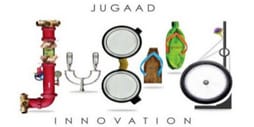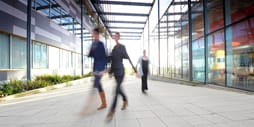Cambridge Judge Business School, celebrating its 25th anniversary this year, leverages the power of academia for real-world impact.
Since 1990, Cambridge Judge Business School has forged a reputation as a centre of rigorous thinking and high-impact transformative education.
Get involved
Help us achieve our vision of a world-class business school, setting a new standard in research, teaching, transformative leadership and innovation. Get involved
Our programmes
Since 1990, Cambridge Judge Business School has forged a reputation as a centre of rigorous thinking and high-impact transformative education.
Cambridge Judge Business School Executive Education offers a wide range of open enrolment and customised programmes. These programmes are designed for organisations, business professionals, managers, leaders, and executives from many different functions who strive for professional and personal growth.
A world-class university must have a world-class business school at its heart… I really believe Cambridge Judge Business School acts as a touch point for the University as a whole, facilitating and engaging in interdisciplinary research and working with the global business community.
Real-world impact
Throughout the year, we are highlighting some of the recent initiatives that demonstrate our impact on people, institutions and society at large:
Spreading the gospel of doing more with less
Professor Jaideep Prabhu and Navi Radjou recognised that the concept of frugal innovation – doing more with less – was having a huge impact in India and across the developing world. Following the publication of their book Jugaad Innovation in 2012, they then saw that the ideas were also spreading to developed countries – resulting in the 2015 book Frugal Innovation: How to Do More with Less. These frugal innovation ideas are being adopted by leading organisations around the globe, including BRAC, the largest non-governmental development organisation in the world. Founded in Bangladesh in 1972, today it is active in countries such as Sierra Leone, Sri Lanka, Afghanistan and Haiti.
Climate change modelling
Dr Chris Hope’s climate change model, PAGE (Policy Analysis of the Greenhouse Effect) simulates the best scientific information linking greenhouse gas emissions and climate change in order to estimate the costs and benefits of climate change policies. PAGE has been used extensively by government agencies in the UK and US, and in international bodies, to improve their calculations of the prices that should be charged for emissions of carbon dioxide.
Helping business prepare for possible catastrophic events
Last year CJBS’s Cambridge Centre for Risk Studies launched the Cambridge Stress Test Series, a series of reports on the potential global impact of threats including pandemics, cyber sabotage, regional conflict and social uprising. These tests help businesses identify their own vulnerabilities to such “catastronomics” in order to identify ways to improve their resilience to sudden shocks in the system.
Fighting childhood malnutrition
JustMilk, a start-up venture mentored and accelerated by the Accelerate Cambridge programme at Cambridge Judge, is tackling the problem of child nutrition through a breastfeeding device, the Nipple Shield Delivery System, which helps deliver nutrients, vitamins and life-saving medication.
“Six Degrees of Innovation”
Professor Stelios Kavadias, the Director of Research at Cambridge Judge, headed up a study commissioned by AT&T that identified six matching patterns where technology and market needs combine to drive transformational business innovation.
Identifying and nurturing promising life science start-ups
AstraZeneca and the University of Cambridge Judge Business School launched a new “Accelerate Cambridge Life Sciences” programme to identify, train and mentor start-up ventures in the life sciences. The initiative is connected to CJBS’s accelerator, Accelerate Cambridge, which has helped 60 companies in the last two years to progress toward investment and growth, and which represents a “lab” in which CJBS can develop new insights what makes successful start-ups tick.
How to get women on boards and keep them there
A study by Professor Sucheta Nadkarni published in conjunction with BNY Mellon and Newton Investment Management – The Rise of Women in Society – identifies the main factors that empower women and enable them to enter the boardroom and stay there, and has attracted media and academic interest around the world. The study found that empowering all women in society through education and labour market participation were the most important factors.
A programme to help restore public trust in banking
The Cambridge Centre for Compliance & Trust has launched a new compliance programme with Barclays, the first executive education academy in excellence in compliance. “The focus is on a values-and-judgement based approach to compliance, leading thinking and creating understanding around the emerging regulatory regimes which are being developed around the world.”
Identifying when hospitals start to malfunction
Professor Stefan Scholtes of CJBS and his colleagues examined hospital efficiency, looking at bed occupancy levels and death tolls at 256 clinical departments at 83 German hospitals. They found the safety “tipping point” for hospitals, the point where mortality levels start shooting up when a hospital reaches occupancy levels close to 100 per cent.










